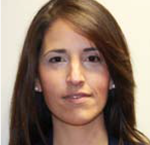The in-house experience
The invaluable knowledge gained heading up jurisdictions worldwide is one thing that Tiago Ferreira de Matos believes distinguishes the in-house role to that of private practice
Being in-house means you need a completely different mindset to being in private practice, says Tiago Ferreira de Matos, Head of Legal at Odebrecht for Portugal and the MENA markets (Middle East and North Africa –including Libya and the United Arab Emirates (UAE)). The company is a global Brazilian conglomerate in engineering, construction, chemicals and petrochemicals in the Americas, Europe, Africa, Asia and the Middle East.
“You have a greater level of responsibility as you see projects from beginning to the end, not always the case in private practice,” he explains, “and the role involves a considerable amount of management, rather like that of a Managing Partner.”
Making the move
Ferreira de Matos says he always wanted to become a lawyer, probably, he jokes, because of the influence of US movies and TV series.When he finished his studies in 2001, he began working at Vasconcelos, F. Sá Carneiro, Fontes & Associados, which then merged with Uría Menéndez in 2004. In late 2007, the firm had placed Ferreira de Matos in Libya working with their client Odebrecht, when he got the invitation to move in-house.
“It was a complete surprise to me, as I always thought that my path would be in private practice,” he says. “I think Odebrecht must have done their maths and realised it was more efficient to hire me directly than through an external law firm.”
He began in 2008 as Head of Legal for Portugal, taking on the added responsibility of heading up West Africa two years later, shortly followed by Mozambique. Finally, in September 2012, he moved to his current role of Head of Legal for Portugal and the MENA markets.
Ferreira de Matos leads a four-lawyer team: one Portuguese, one Brazilian and one Lebanese lawyer based with him in Lisbon and a Libyan lawyer based in Tripoli. His Brazilian lawyer is “his shadow”, the Lebanese lawyer is focused on the MENA markets and the other two are each responsible for aiding him with their respective jurisdictions.
Externalising
While keeping most matters in-house, Ferreira de Matos does outsource big litigations, and labour and tax issues. For general issues his go-to externals are Duarte Brito de Goes (Campos Ferreira Sá Carneiro & Associados) and various lawyers at Vieira de Almeida (VdA).“I knew Duarte as we originally worked together at Uría Menéndez, where he formed the relationship with Odebrecht,” he says. The relationship with VdA is more recent, and started when Odebrecht partnered on some Brisa projects, the Portuguese-based transportation multinational, a long-standing client of VdA.
For construction-related issues, Ferreira de Matos goes to Albano Sarmento at Gómez Acebo & Pombo, a former Odebrecht in-house counsel. He also has local counsel in Libya, who he doesn’t want to name as “he’s too good to lose!”, and in the UAE there is not much demand for externals, but when necessary he has a good relationship with Hadef & Partners.
Juggling jurisdictions
Dealing with different countries throws up many issues. In Libya, although the legal system is based on Sharia, the mindset is influenced by civil law countries, he says, but the environment is rather unpredictable. Post-revolution, it is difficult for any foreigner to be there for any length of time given safety, he adds, and it is extremely hard to find sophisticated local lawyers. So he is lucky to have found a local counsel in whom he has the utmost trust.
In the UAE, however, he has more of a challenge. “For example, our project is located in Abu Dhabi, so you have UAE federal laws, local Emirate law, then some principles of Sharia law, and also a common law element of interpretation since most law firms there are based in the UK.” It is, he says, a complete melting pot of laws and interpreters of the law, but the legal market itself is very sophisticated.
In-house lessons
While he doesn’t rule out returning to private practice, there are unique opportunities in-house that he feels he would not get at a law firm. He credits his time in Africa, for example, as giving him the basis on which to deal with the UAE. “The biggest mistake when dealing with Africa is to consider that one country is the same as another,” he explains. “Mozambique, for example, is heavily influenced by Portugal, South Africa and other SADC countries, but just because they are neighbours or Portuguese-speaking does not mean they are the same.” And this has allowed him to better manage the “melting pot” of the UAE and its various Emirates and legal systems.
“Being in-house allows me to work with the world in a way that is much more limited in private practice,” he says. And this wider view of the world and its legal markets is invaluable in today’s increasingly international market.
Tiago Ferreira de Matos is Head of Legal at Odebrecht for Portugal and the MENA markets (Middle East and North Africa –including Libya and the United Arab Emirates (UAE)).












